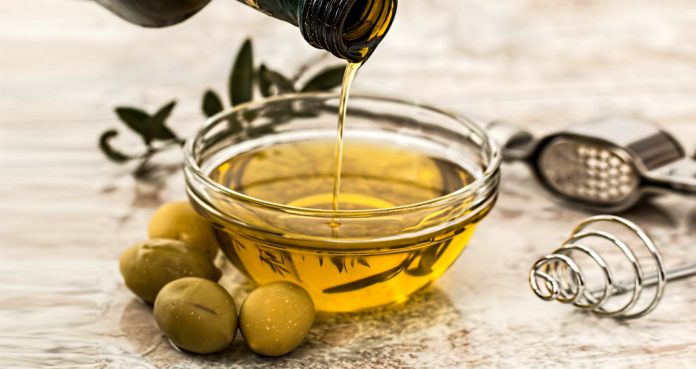A new study conducted by the researchers of the Lewis Katz School of Medicine at Temple University has found that extra virgin olive oil (EVOO) could help boost brain function and prevent different forms of dementia.
EVOO is loaded with antioxidants and has been known for its several health benefits, including preventing heart disease. Previous studies conducted on mice have found that EVOO could preserve memory and protect one from Alzheimer’s.
The current study, which was also conducted on mice, found that EVOO can prevent dementia and cognitive decline by preventing the abnormal formation of a protein called “tau” in the brain. Tau has been found to decline the mental functions and memory.
Senior study author Dr. Domenico Praticò, said the new study has supplied another piece of evidence showing that EVOO has the ability to prevent cognitive decline and protect the areas of the brain, where neurons attach together to communicate and exchange information.
“EVOO has been a part of the human diet for a very long time and has many benefits for health, for reasons that we do not yet fully understand,” said Dr. Praticò. “The realization that EVOO can protect the brain against different forms of dementia gives us an opportunity to learn more about the mechanisms through which it acts to support brain health.”
In previous research, Dr. Praticò and his team found that EVOO protected mice from learning and memory impairment as their age progressed. More importantly, they found that the brain tissues of the mice fed with EVOO rich diet had no typical features of cognitive decline, especially the accumulation of amyloid plaques between neurons in the brain. In fact, they found that the mice’s brains looked normal.
In the current study, the researchers found the same results in the mice who developed tau in their brains. Tau accumulates in the brain forms harmful tau deposits, also known as tangles. Tau accumulations are somewhat similar to the accumulation of amyloid plaques in Alzheimer’s, blocking neuron communication and eventually impairing memory.
The researchers put the young mice on diet rich in EVOO and found them performing better in learning and memory tests than the mice who were not given diet containing EVOO. Dr. Praticò and his team is now planning to understand what happens when diet rich in EVOO is given to older mice and determine whether it can reflect the same in humans. He said, “We are particularly interested in knowing whether EVOO can reverse tau damage and ultimately treat tauopathy in older mice.”























